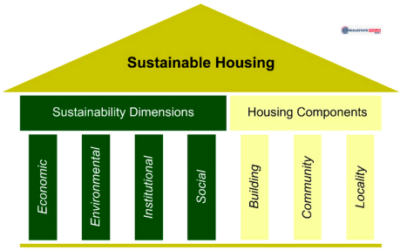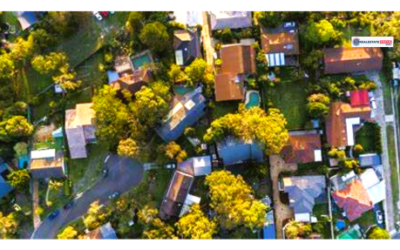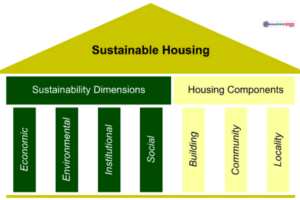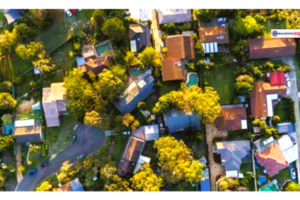

Mixed Development in Legal Limbo: Why Malaysia’s Real Property Development Act Must Define the Future of Urban Living
PETALING JAYA – As urban landscapes evolve and the line between commercial and residential spaces continues to blur, stakeholders are raising a red flag: What exactly constitutes a mixed development?
The call for a precise legal definition under the proposed Real Property Development Act (RPDA) is growing louder, with consumers, industry experts, and advocacy groups voicing concern that the absence of clear regulations has left property buyers vulnerable in a grey legal zone.
At the core of this debate are hybrid property categories such as Soho (Small Office/Home Office), Sofo (Small Office/Flexible Office), and Sovo (Small Office/Versatile Office). These units, while built for dual-use purposes, are often ambiguous marketed under commercial titles but occupied primarily as residential homes. Currently, such developments escape the purview of the Housing Development (Control and Licensing) Act 1966 (Act 118), which means buyers have limited recourse when projects go awry.
A Sector in Need of Clarity
According to Saravanan Thambirajah, CEO of the Federation of Malaysian Consumers Association (Fomca), the RPDA must clearly define what qualifies as mixed development to ensure comprehensive oversight.
“We cannot allow a vacuum where these hybrid developments exist outside legal protection. Without explicit classification and regulation, developers have too much leeway, and buyers face unnecessary risk,” Saravanan said.
The ambiguity surrounding what qualifies as mixed development is not just a legal oversight, it is a consumer rights issue. Saravanan stressed the necessity of robust safeguards, including mandatory developer licensing, financial checks, and standardized sale agreements. He also called for a formal complaints tribunal and improved enforcement mechanisms, cautioning that laws are “only as good as their enforcement.”
A Taxation and Utility Dilemma
Paul Puah Chee Keong, CEO of PMC Facilities & Real Estate, emphasized that clarity isn’t just about legal protection, it’s about fair taxation and utilities.
“Many buyers of Soho, Sofo, and service apartments are unfairly taxed at commercial rates even though they live in these units as their primary residences. This is an issue of justice as much as it is one of policy,” Puah explained.
Puah advocated for the RPDA to incorporate elements from existing legislation like the Strata Management Act, ensuring a seamless experience for property owners and management teams alike. He also supported aligning management standards, service charges, and billing structures to ensure transparency across mixed developments.
Legal Vacuum, Real Consequences
The lack of protection for commercial-titled residential units has resulted in a growing list of abandoned and delayed projects, leaving buyers without legal avenues for recourse. Nga Kor Ming, Minister of Housing and Local Government, acknowledged these shortcomings during the StarProperty Real Estate Developers Awards 2025, revealing that many affected buyers are left legally stranded.
“Sofo and Sovo developments fall outside the current HDA, leaving buyers with no legal remedies when problems arise. The RPDA is being designed to close this loophole,” Nga said.
His ministry is also exploring the Building Managers Act, aimed at raising the bar for property management. The shortage of qualified managers only 594 licensed firms for nearly 3 million strata units has contributed to deteriorating building conditions and depreciating property values.
Avoiding Definition Abuse
A recurring concern is the potential for definition abuse. Without precise terminology, developers could exploit loopholes, using hybrid labels to bypass stricter residential regulations while marketing the properties as homes.
“The terms Soho, Sofo, and Sovo are often just marketing gimmicks,” Puah warned. “They’re functionally similar but serve as tools to navigate regulatory grey areas. Clear definitions in the RPDA will prevent such manipulation.”
What’s Next?
Stakeholders are largely supportive of the RPDA but urge that it not be rushed. Comprehensive consultations with developers, legal experts, consumer groups, and urban planners are vital to ensure the Act is effective without causing market disruption.
Saravanan’s message is clear: “We’ve waited long enough. It’s time for the RPDA to define the future of property in Malaysia and to finally bring mixed developments into the light of the law.”
Conclusion:
As Malaysia modernizes and mixed-use developments become more common, the legal framework must catch up. The RPDA represents a critical step toward bridging the regulatory gap but only if it boldly and clearly defines the very developments it seeks to govern.



































